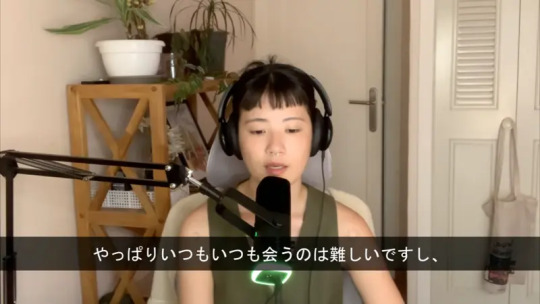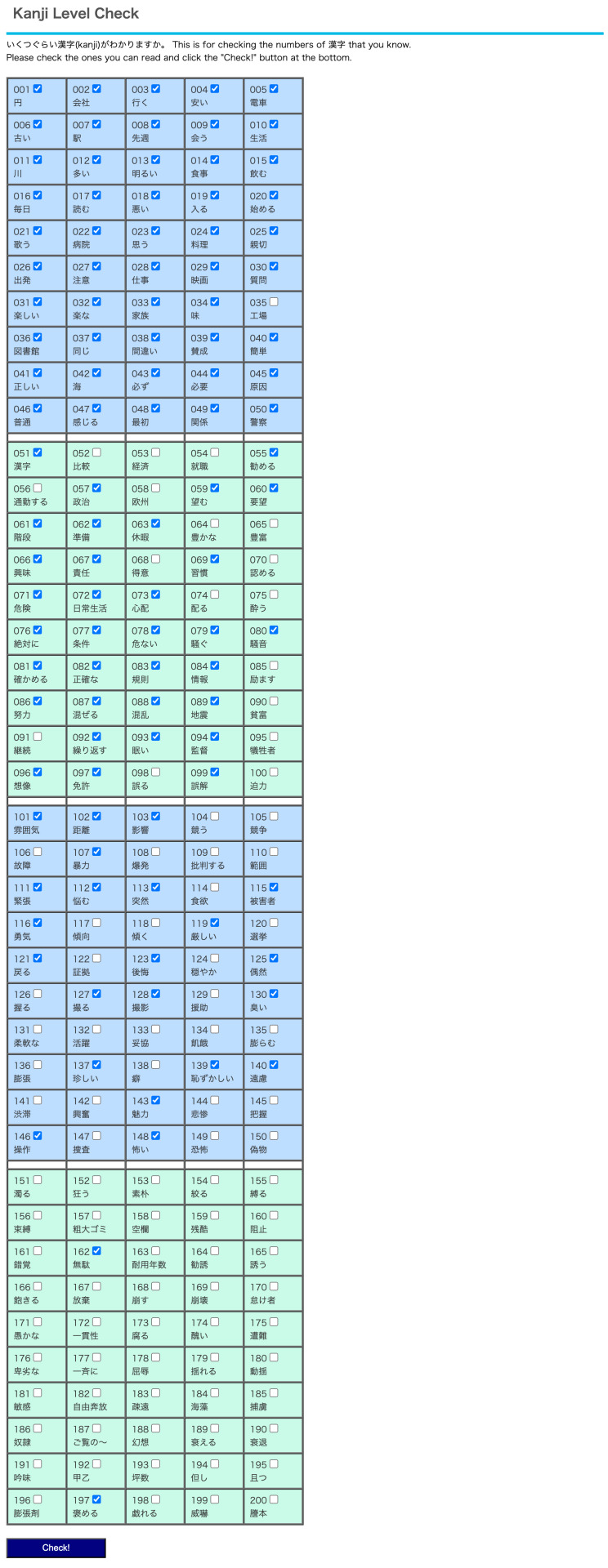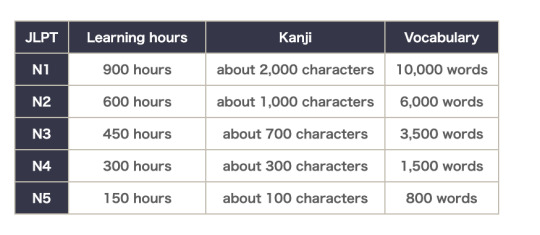I love learning languages! Language learning notebook for polyglots.#meowbrown #langblr #studyblr
Last active 60 minutes ago
Don't wanna be here? Send us removal request.
Text
名詞 + すら
Going through the list of shows on Netflix but can't even pick one!!!! I can relate to that from the podcast.
自分はやることもないし、見たいものすらないのか!!??? I have nothing to do, and I don't even have anything I want to watch?!
Usually used in a negative way.
〜子供ですら知ってる。 Even a child knows that.
Reference
With the timecode from the podcast
youtube
0 notes
Text
〜ようになった
Context (skip this part if you're here for the Japanese)
I haven't shared it on here but I've been laid off this April. And a couple of people reached out to me to help them with their websites. And I finally finished my first project this week!
能力 (verb potential form) + ようになった
to become able to
so here it's always used as an affirmative case as mean to gain the ability, therefore using the potential form of the verb
やっとフリーランサーって言えるようになったが気がする! I feel like I can (be able to) finally say I'm a freelancer.
What about an ability affected negatively?
According to the reference post below, it's to stick with なくなる, so for example:
食べられる -> 食べられなくなる
Reference
10 notes
·
View notes
Text
「決める」と「決まる」
決まる - 自動詞
It is a state going from not being determined -> determined.
僕、バイト決まったよ。 I got a part-time job. (not have part-time job -> have part-time job)
日程(にってい)が決まる。 The schedule is decided.
決める - 他動詞
The person talking decides it.
日程を決める。 The schedule will be decided.
Reference
3 notes
·
View notes
Text
白い目で見る
映画中に携帯をマナーモー��にせず、電話が鳴った彼は周りから白い目で見られた。 He who didn't put the phone on silent mode during the movie and it rang, he was looked at coldly by those around him.
Reference
The preview picture in the post is spot on!
2 notes
·
View notes
Text
~ずに
without
朝ごはんを食べずにオフィスに行くと、疲れますよ。 You’ll get tired if you go to the office without eating breakfast.
若い頃は何も考えずに、思うことを全部書いた。 When I was young I wrote down everything I was thinking about without thinking.
So for verbs it's actually ない form of the verb but remove the ない + ずに. It's that my verbs used here are all Group II words so it wasn't obvious.
Notes from 2025-02-18
Reference
9 notes
·
View notes
Text
年代が上がるにつれ...
as X then Y
年代が上がるにつれ、いつも会うのは難���いです。 As the years go by, meeting often becomes difficult.
Grammar
Noun + につれ/につれて
Verb (dictionary form) + につれ/につれて
につれ is the shortened form
Reference
I forgot which podcast episode this was from but it was from

8 notes
·
View notes
Text
Half year check in!
Although I stopped posting my 日記 to tumblr, I've been doing once per week up until now (since I have Japanese class each week).
One thing I'd like to note is that I started using Migaku in May. I've studied more vocab than ever since I started using it and the streak is going strong!
It is the best tool for immersion IMO because all you need to do is just install the browser extension and you're good to go.
2025年日本語の勉強ゴール
Looking back at 2024, I'm around N3 for reading and listening. And because I know Chinese, I can guess the meaning of a lot of 漢字 (although I don't know how to pronounce them).
But I'm still very weak with outputting (writing and speaking), maybe around N5-N4 level.
As I rarely study outside of my lessons (1 hour lesson per week), I'm not going to go with a plan that changes what I'm currently doing drastically. With aggressive plans, it'll probably fail within a month.
So my 新年の抱負 (ほうふ) is:
Write one diary per week and no more than 3 entries if I'm really into it to not burn myself out.
週に一回日記を投稿するようにします。やる気があるときは最大 (さいだい) 3回までにして、燃え尽きない (もえつきない) ように気をつけます。
5 notes
·
View notes
Text
Check Kanji Level
I'm around 1000-1100!

Check to see how you're doing ❤️

Actually I can "understand" more than that due to the Chinese helping me, but I only ticked the boxes where I really know how to read/pronounce the word.
44 notes
·
View notes
Text
「働く」と「勤める」はどう違いますか?
They both mean work, but 勤める is like a specific case of 働く.
働く (はたらく)
More general of work, paid or unpaid.
毎日働くのは大変だ。 It's tough to work every day.
彼はよく働く人だ。 He is a hardworking person.
勤める (つとめる)
Almost always used with a specific company, organization, government office, etc. Often followed by the particle に to indicate the place of employment.
私は銀行に勤めています。 I am employed at a bank.
この会社に10年勤めています。 I have been working for this company for 10 years.
So if you 勤める somewhere, you are also 働く there.
14 notes
·
View notes
Text
〜だけで and 〜でだけ
Found that this nuance is quite interesting and would like to make a note of it.
話し合いだけでこの問題を解決できる。 This problem can be solved just by discussion.
This implies the problem can be solved other ways, but we can simply do it with discussion alone.
話し合いでだけこの問題を解決できる。 It is only by means of discussion that this problem can be solved.
This implies that solving the problem in other ways is meaningless.
だけで is used more commonly as でだけ has a strong exclusivity which people may use when they want to put the emphasis on ONLY BY DOING....
23 notes
·
View notes
Text
になります for being polite
When I first learned about になる it was about "to become" like
医者になります。 Become a doctor.
But today I saw this sentence:
中古品として購入したものになります。 It was purchased as a second-hand item.
So I tried searching Noun + なります without much luck until I found:
So it's just a polite way for noun + です. It is often used by store clerks.
Instead of saying: コーヒーです。 They'll say: コーヒーになります。 Here's your coffee.
9 notes
·
View notes
Text
How to ask "What is the difference between A and B?" in Japanese
I think it's time to write down this phrase and I always ask my Japanese teacher in English and I should stop.
Sentence structure:
「A」と「B」はどう違いますか?
「A」と「B」の違いは何ですか?
For example for asking: What's the difference between 勤める and 働く?
「勤める」と「働く」はどう違いますか?
「勤める」と「働く」の違いは何ですか?
32 notes
·
View notes
Text

It's meowbrown's 1 year anniversary on Tumblr 🥳 (April 10th)
Reminding me to post more as well 💖
1 note
·
View note
Text
That's true / You're right / Showing agreement (そっか / たしかに / まあね)
As always, the nuance in Japanese needs me to document this down.
そっか - also means I understand you, shows empathy
たしかに - had different opinion, but now I agree you're right
まあね - subtle agreement, may have a slightly different opinion, but don't want to say it aloud
A: 今日、パスタ食べに行かない? B: うーん、パスタか... 。昨日も食べたんだよね。 A: そっかー。 [A immediately understands and acknowledges B's reason for not wanting pasta (ate it yesterday).] B: じゃあ、和食は?OOOの定食、美味しいらしいよ。 A: 和食か... 。ちょっと高いんだよね、あそこ... B: あ、そうだった?ランチは手頃な値段って聞いたけど。 A: たしかに、ランチなら大丈夫かも。夜は高いけど。 [A initially hesitates about Japanese food due to price. B provides new info (lunch is cheaper). A uses "たしかに" to agree with B's point about "lunch price" specifically, shifting from initial price concern to accepting lunch as an option.] B: よかった。じゃあ、和食にする? A: まあね、和食もいいね。たまには。 [A agrees to Japanese food, but "まあね" and "たまに��� (tama ni wa - once in a while)" show subtle agreement. It's acceptable, but not a passionate "YES! Japanese food!".] B: うん、そうしよう。
#そっか#たしかに#まあね#studyblr#langblr#japanese langblr#日本語#japanese#レッスンメモ#meownotes#that's true#you're right
75 notes
·
View notes
Text
See you 👋 じゃね!
Its original form is:
では、また会いましょうね well then... see you again
では can be shortened to じゃ, it's common in Japanese speaking
また会いましょう part is often omitted because it's implied
ね adds a softness to the tone
So it becomes:
じゃね or じゃあね
30 notes
·
View notes
Text
絶対領域 (ぜったいりょういき)
I didn't expect Ariana to speak Japanese 😮
私の絶対領域はとてもセクシーです。
youtube
There's a Wikipedia entry for 絶対領域 too.
Here's the Wikipedia link, as the link preview feels a little NSFW 😱
1 note
·
View note
Text
Could you pretend it did not happen?
Feels like a useful phrase, but I probably don't know how to make this sentence from scratch, so I might as well write it down 😅
なかったことにしてくれない?
なかった - did not exist, did not happen
こと - thing
にする/にして - A を B にする means to treat A as B, to make A into B
くれない - くれる means to do for me, くれない is would you not do it for me? which is more like "could you please do it for me"
In this sentence, there is a hidden item, like spilling the juice or an "oopsie" is the thing that we want to treat as なかったこと (the thing that didn't happen).
The literal translation would be: Treat it (the oopsie) as something that didn't happen, could you please do it for me?
The context I heard this in was A and B almost had a one-night stand.
A: 昨日の夜のこと... B: なかったことにしてくれない?
71 notes
·
View notes